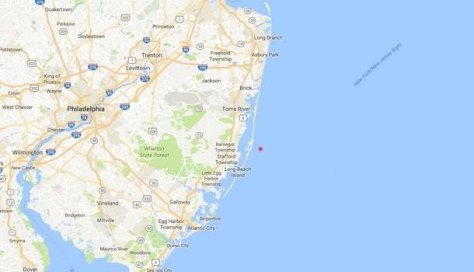
Fisherman injured, chowder destroyed by Unexploded Ordnance (bombs, mines, rockets, explosives releasing their chemicals in our ocean left by DOD)
PLEASE SHARE AND TWEET THIS POST, THANK YOU FOR YOUR TIME AND CONSIDERATION, Terry
Support International Dialogue on Underwater Munitions (IDUM) for A Global Treaty on all Underwater Weapons! Our waters will continue to experience chemical releases for the next 10,000 years destroying our fish stocks and impact our health unless we eradicate underwater weapons.
“How come DOD doesn’t fund and investigate the problem of sea dumped weapons when they are the body that created the situation which harms our fish stocks and the ocean as we understand it. DOD’s tasks are to defend Americans at home and abroad from threats, yet environment, isn’t one of their top 10 priorities. DOD is responsible for the situation that impacts our seas and oceans on a Global Scale including the health of Americans while saving dollars over public health. Underwater Munitions, will be another US Flint!!!! Denial, denial, denial fueled by DOD dollars to their like-mined agencies. I hope that Americans understand the global human health and environmental impacts which aren’t going away but getting worse!
DOVER, Del. – A fishing crew apparently pulled up unexploded ordnance while clamming, leading to a fisherman being hospitalized with second-degree burns and the destruction of more than 700 cases of chowder, officials said.
It’s unclear what the ordnance was, but fishing vessels along the Atlantic Coast routinely dredge up munitions, including mustard agent, that were dumped at sea decades ago when environmental laws were far more lax.
The injured fisherman was treated at a hospital in Philadelphia for burns and blisters, said U.S. Coast Guard Petty Officer Seth Johnson.
Such injuries are consistent with mustard agent exposure.
The crew of the fishing vessel the William Lee found what they believed was an old or discarded ordnance canister on Aug. 2 and threw it back into the ocean 30 miles east of Barnegat Inlet, Johnson said.
Larry Hajna, a spokesman for the state Department of Environmental Protection, said the agency wasn’t told about it until Tuesday – a week later. The agency immediately reported it to the Coast Guard, he said. The boat was impounded in Atlantic City, New Jersey, and inspected Wednesday, but no hazardous materials were found, Johnson said. He said the Coast Guard is investigating why it wasn’t immediately reported.
In the meantime, clams from the vessel had already been delivered to Sea Watch International, a seafood processor in Milford, Delaware. More than 500 cases of clam chowder were impounded at the plant, and a truck was sent to a New Hampshire warehouse to retrieve 192 more cases, according to Michael Globetti, a spokesman for the Delaware Department of Natural Resources and Environmental Control.
A phone message left with the captain of the ship Friday morning to ask about the delay in reporting it and to determine the condition of the crew member wasn’t immediately returned.
Sea Watch did not return phone calls seeking comment.
Lauren Sucher, a spokeswoman for the FDA, said it was unlikely that any of the clam chowder was contaminated, but “because it is not feasible to test all of the company’s product in a timely manner, the company has agreed to voluntarily destroy the entire product lot.”
The FDA doesn’t think there is any public health risk because it believes none of the chowder reached consumers, Sucher said.
The Sea Watch plant has been evacuated at least twice after the discovery of military explosive containing mustard agent. In 2004, the federal Occupational Safety and Health Administration fined it $9,000 because of safety violations involving exposure to vintage military explosives.
In 2010, a clam boat out of Atlantic City dredged up ordnance containing mustard agent while fishing about 45 miles south of Fire Island, New York. Two crew members were taken to a hospital, and some 39,000 pounds of clams were isolated at a Sea Watch plant in New Bedford, Massachusetts.
Mustard gas, a chemical-warfare agent used in combat by the U.S. during World War I, can cause skin blisters, lung damage, blindness and death.
Johnson said people who suspect they have come into contact with unexploded ordnance should get away from it and contact the Coast Guard.
Terrance P. Long Post 1-902-577-9439 (Canada)